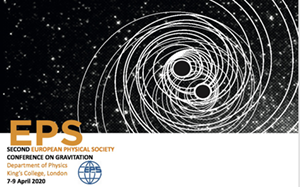Speaker
Description
The passage of gravitational waves (GWs) through a binary perturbs the trajectories of the two bodies, potentially causing observable changes to their orbital parameters. In the presence of a stochastic GW background (SGWB) these changes accumulate over time, causing the binary orbit to execute a random walk through parameter space. In this talk I will present a powerful new formalism for calculating the full statistical evolution of a generic binary system in the presence of a SGWB, capturing all six of the binary's orbital parameters. I will show how this formalism can be applied to laser ranging and pulsar timing observations to set novel upper limits on the SGWB spectrum in a frequency band which is inaccessible to all other GW experiments. As an example application of these searches, I examine GWs from cosmological first-order phase transitions (FOPTs), and show that binary resonance can constrain regions of the FOPT parameter space which no other experiment can access.

